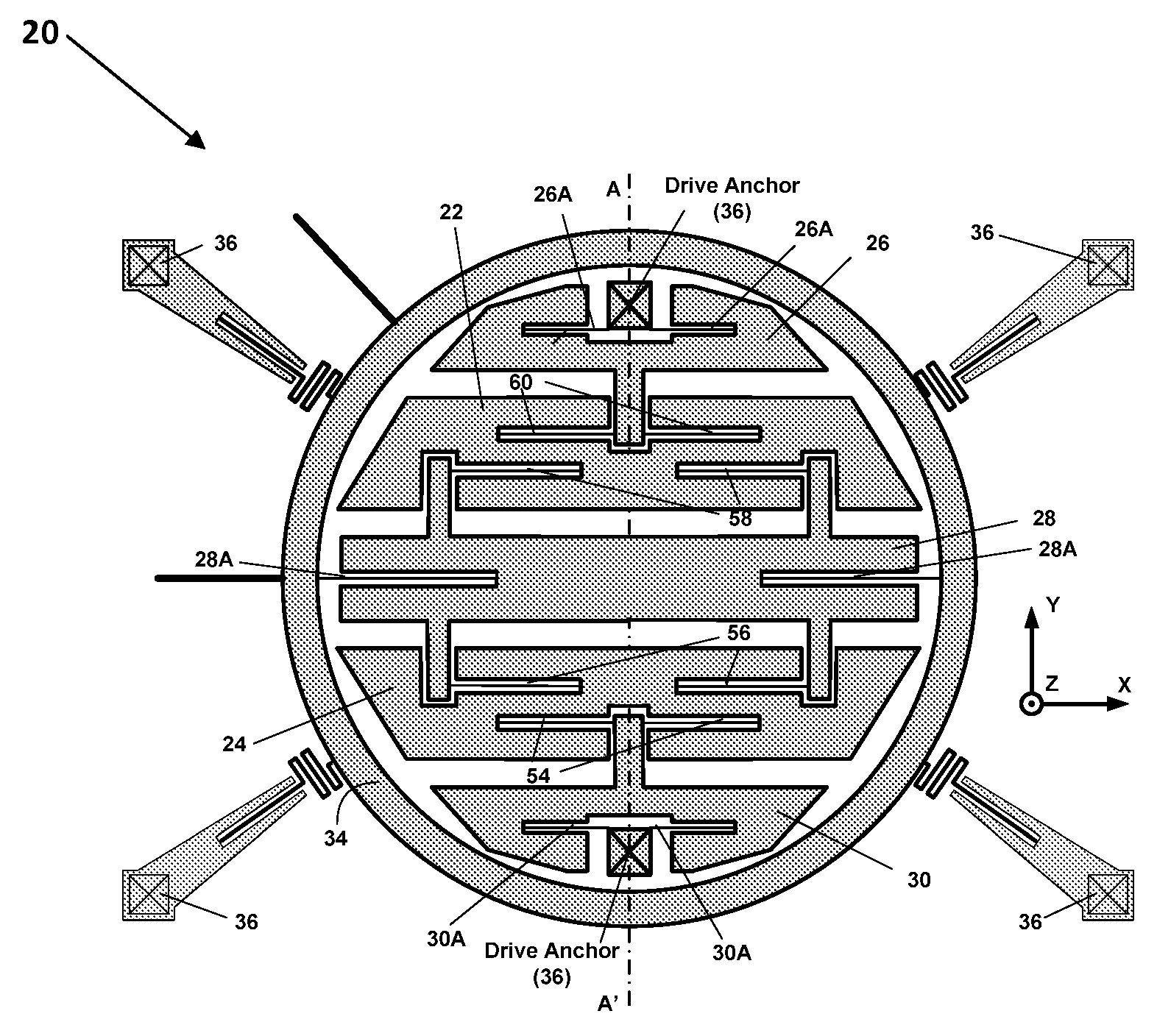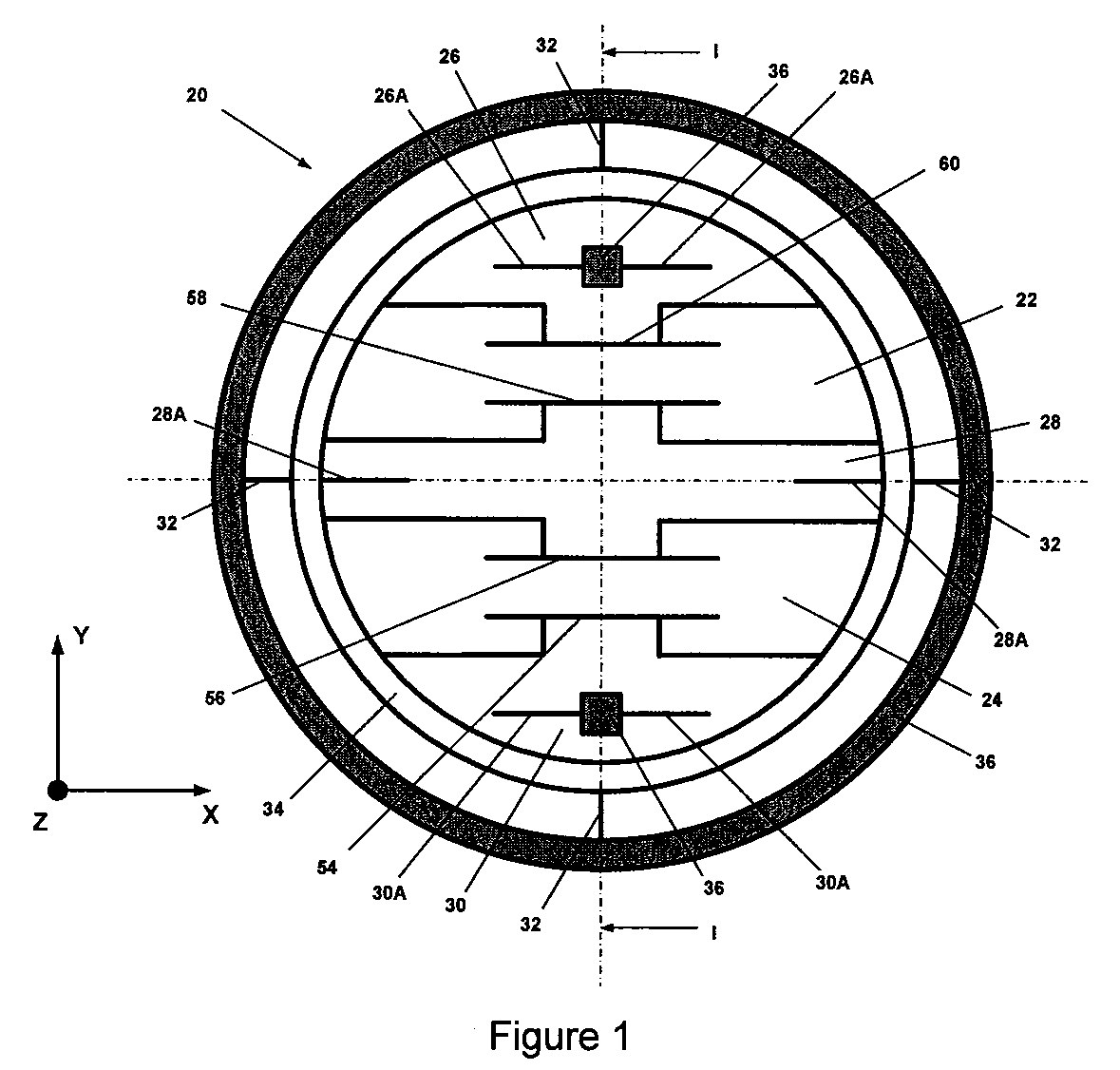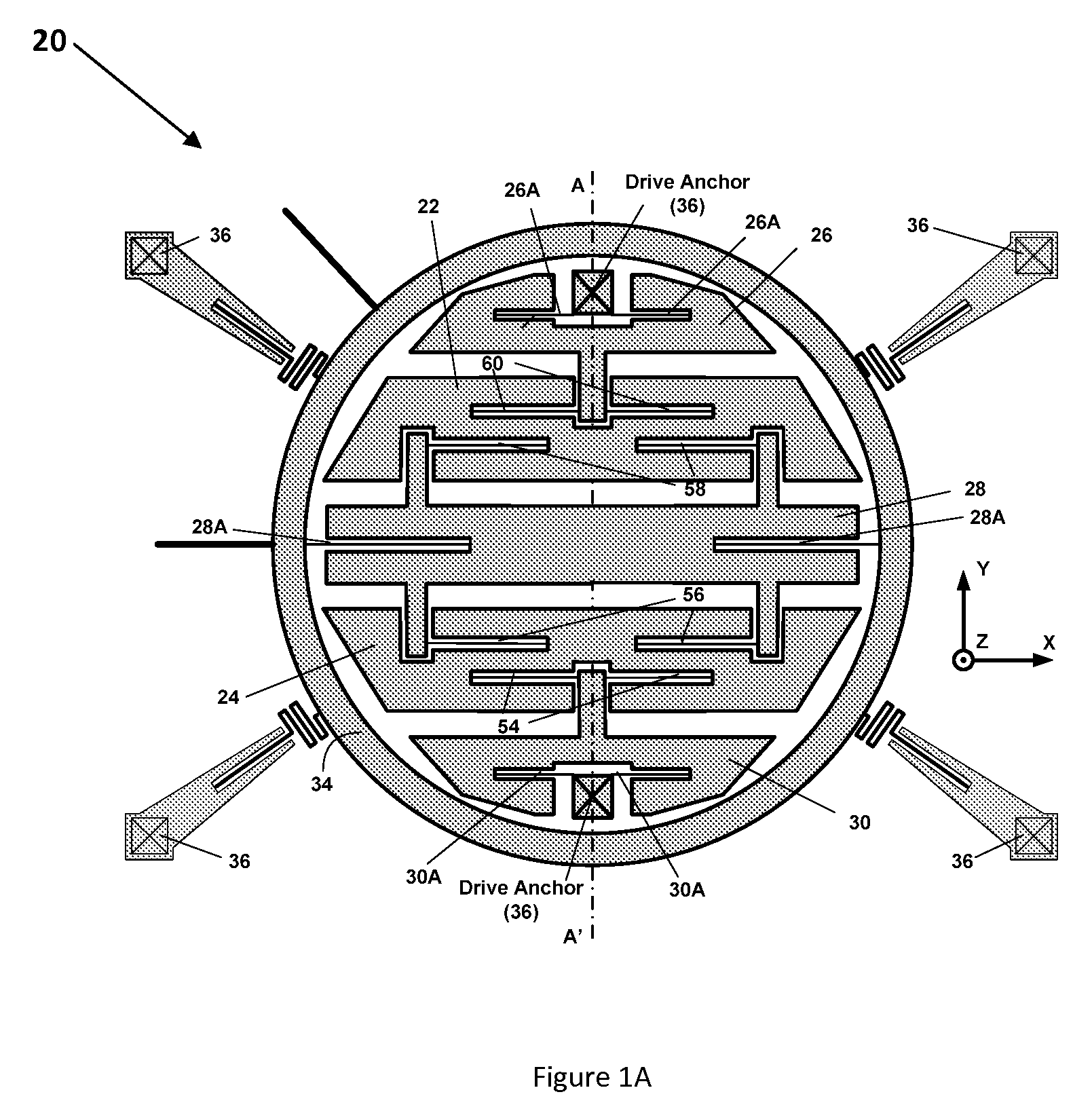X-Y axis dual-mass tuning fork gyroscope with vertically integrated electronics and wafer-scale hermetic packaging
a technology of x-y axis and tuning forks, applied in the field of can solve the problems of inability to drive two masses with equal and opposite velocities, disadvantages, and inability to fully realize the common mode rejection of two mass in-plane angular velocity sensors, so as to improve common mode rejection, improve measurement accuracy, and reduce cost
- Summary
- Abstract
- Description
- Claims
- Application Information
AI Technical Summary
Benefits of technology
Problems solved by technology
Method used
Image
Examples
first embodiment
[0041]FIG. 1A is a mechanical configuration of the gyroscope wafer 20 of FIG. 1.
second embodiment
[0042]FIG. 1B is a mechanical configuration of a gyroscope wafer 20. In this embodiment flexures 54 and 55, and flexures 58 and 60 are flipped over from that of FIG. 1A thereby increasing the effective distance of the proof masses 22 and 24 from the center of the plate 28 therefore providing more sensitivity.
[0043]FIG. 1C is a third embodiment of a mechanical configuration of a gyroscope wafer 20. In this wafer 20, the frame 34 is suspended to the base 36 through four points 65a-65d, and edge plates 26 and 30 suspended to the base 36 through two the drive anchor portions. Accordingly, in the third embodiment, the number of drive anchor points to the base is reduced to two. This reduces the amount the package effects to the sensor parameters.
[0044]Two exemplary electrode configurations suitable for sensing and / or driving relative angular motion of frame 34 with respect to base 36 are schematically illustrated on FIG. 5 as 38A, 38B, and 38C and 40A, 40B, and 40C. These, or similar, el...
PUM
 Login to View More
Login to View More Abstract
Description
Claims
Application Information
 Login to View More
Login to View More - R&D
- Intellectual Property
- Life Sciences
- Materials
- Tech Scout
- Unparalleled Data Quality
- Higher Quality Content
- 60% Fewer Hallucinations
Browse by: Latest US Patents, China's latest patents, Technical Efficacy Thesaurus, Application Domain, Technology Topic, Popular Technical Reports.
© 2025 PatSnap. All rights reserved.Legal|Privacy policy|Modern Slavery Act Transparency Statement|Sitemap|About US| Contact US: help@patsnap.com



